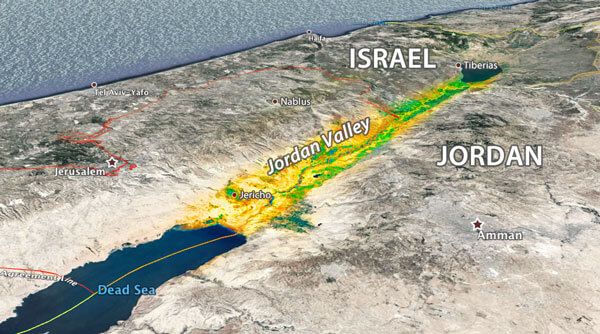Last year, we called out the Los Angeles Times over a staff editorial with a deeply flawed take on West Bank settlements. With increasing talk of Israel annexing parts of the West Bank, it’s crucial the Times gets the story right.
Unfortunately, the paper continues to struggle with that topic. US Secretary of State Mike Pompeo visited Israel, but the Times would have been better off writing a staff editorial rather than foreign affairs writer Tracy Wilkinson’s dispatch from Washington ahead of the visit. Years ago, Wilkinson worked in Israel for the LA Times.
Her context was still convoluted.
Related Reading: Defining Bias: Lack of Context
Join the fight for Israel’s fair coverage in the news
The Historical Context
Readers of the Times would easily get the impression that settlements reflect an expansionist Israel thanks to this oversimplified line:
Israel seized the land during the 1967 Middle East War and proceeded to build scores of Jewish settlements, now housing hundreds of thousands of Israelis.
To clarify the historical context here, the Six Day War was a preemptive attack on the armies of Egypt and Syria, which had massed their armies on Israel’s borders. Egypt’s closure of the Straits of Tiran was technically a casus belli. Despite Israeli pleas that Jordan stay out of the fighting, King Hussein’s forces began shelling Israeli positions. Israel counter-attacked, quickly routing the Jordanians from the West Bank.
After the war, Israel offered to return the lands it captured in exchange for peace. The gesture was met with the Arab League’s famous Three Noes. The rest is history.
That’s a far cry from the Times’ description of simply “seized.”
The Legal Context
Wilkinson’s very next sentence further twists the context, this time in terms of settlements’ legality:
The settlements are widely considered illegal under international law.
As we pointed out before, blanket statements that settlements are illegal according to international law are not only not true, they prejudice readers. While most of the world views settlements as illegal, Israel has a compelling legal argument, which, yet again, the Times doesn’t see fit to acknowledge:
- The Jewish people have historical ties to the West Bank.
- Before Jordan seized the West Bank in 1948, Jews lived in the West Bank and privately owned land.
- Jordan never had sovereignty over the West Bank, which means the territory cannot be considered “occupied.”
- Settlements don’t displace Palestinians, nor does the Jewish population preclude territorial compromise.
- Settlements do not violate the Fourth Geneva Convention.
- The Palestinians accepted the existence of settlements by signing the Oslo accords.
For a fuller explanation of Israeli arguments for the legality of settlements, see Eugene Kontorovich, Mitchell Bard, Eugene Rostow, Moshe Dann and Jeffrey Helmreich.
The issue of annexing the Jordan Valley and a number of West Bank settlements as suggested by the US is complex, and Israelis are divided.
But if readers are to make informed judgments, the Los Angeles Times will have to do a better job than this of filling in the context.


